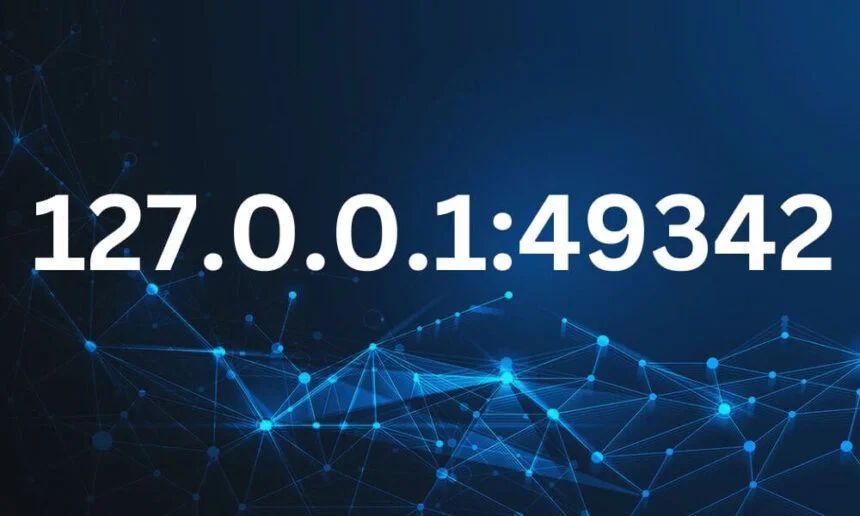
Introduction to IP Address and its Importance in Network Security
In the vast world of networking, IP addresses are like street addresses for devices. They help us navigate the complex web of connections that make our online experiences possible. Among these, one address stands out: 127.0.0.1:49342. This seemingly random combination holds significant weight when it comes to network security.
Understanding what this address represents and why it matters can be crucial in safeguarding your digital environment. Let’s dive into the intricacies of 127.0.0.1:49342 and explore its importance in maintaining a secure network landscape where threats lurk behind every corner—ready for detection and neutralization!
The Significance of 127.0.0.1:49342 in Network Security
The IP address 127.0.0.1, often referred to as localhost, is a vital component in networking and security protocols. When combined with port number 49342, it opens up discussions about internal communications within systems.
This specific address allows users to communicate with their own computer for testing purposes without exposing data externally.
However, its significance lies beyond mere testing tools; it can also be exploited if not properly managed. Cybercriminals may use this pathway to launch attacks or exploit vulnerabilities in applications running on the same machine.
Understanding how 127.0.0.1:49342 operates is crucial for maintaining robust network security practices while navigating potential risks associated with internal communications.
Common Threats to Network Security and How to Mitigate Them

Network security faces various threats that can compromise sensitive information. One common threat is malware, which includes viruses and ransomware. It infiltrates systems, often through malicious attachments or downloads.
Phishing attacks also pose significant risks. These scams trick users into revealing personal data by masquerading as legitimate entities. Awareness and training are essential to combat this.
Another major concern is unsecured networks, particularly public Wi-Fi. Cybercriminals exploit these connections to intercept data communications effortlessly.
To mitigate these issues, implementing robust firewalls and antivirus software is crucial. Regular updates of all systems help patch vulnerabilities that hackers might exploit.
Educating employees about recognizing suspicious activity can significantly reduce the likelihood of successful attacks. Additionally, using strong passwords combined with two-factor authentication adds an extra layer of protection against unauthorized access to accounts and sensitive information.
Using 127.0.0.1:49342 for Secure Remote Access and Troubleshooting
Using 127.0.0.1:49342 for secure remote access offers a reliable way to connect without exposing your system to external threats. This IP address refers to the localhost, which means you are accessing your own device from within.
By utilizing this address along with port 49342, users can set up secure tunnels for data transmission. This method ensures that sensitive information remains protected while being exchanged between applications or services running on the same machine.
Troubleshooting becomes significantly easier as well when using 127.0.0.1:49342. It allows developers and IT professionals to test configurations in a controlled environment without risking network-wide disruptions.
Whether resolving software issues or assessing application performance, this approach keeps everything contained and manageable, enhancing overall security during the process of analysis and repair.
Best Practices for Utilizing 127.0.0.1:49342 for Enhanced Network Security
To effectively utilize 127.0.0.1:49342 for enhanced network security, start by restricting access to this IP address. Limit it exclusively to trusted users and internal applications.
Next, implement robust firewall rules that specifically monitor traffic directed at this port. Ensure you regularly check logs for any unusual activity or unauthorized attempts.
Utilizing secure protocols like SSH can further protect data transmitted through this loopback address. This adds a layer of encryption, making interception difficult.
Regularly update your software and systems to patch vulnerabilities that could be exploited via 127.0.0.1:49342.
Educate your team on the importance of maintaining awareness about local network activities involving this address while encouraging best practices in password management and authentication methods.
Conduct periodic audits of all services running on this port to identify any potential weaknesses or configurations needing adjustment.
Real-World Applications of
The IP address 127.0.0.1:49342 serves multiple purposes in real-world applications, particularly within the realm of network security and development.
For software developers, this address represents a vital tool for testing applications locally before deploying them online. It allows them to simulate user interactions without exposing their work to potential threats.
Network administrators utilize 127.0.0.1:49342 as part of remote access protocols, ensuring secure connections when troubleshooting systems or monitoring traffic without revealing sensitive data externally.
Cybersecurity experts often analyze traffic directed at this address to detect anomalies or malicious activities that could indicate an internal threat.
Moreover, ethical hackers may exploit this IP during penetration tests to assess vulnerabilities in web applications hosted on local servers, providing invaluable insights into enhancing system defenses against potential breaches.
Understanding the meaning of 127.0.0.1:49342
The address 127.0.0.1 is known as the loopback IP address. It directs traffic back to the local machine, essentially allowing devices to communicate with themselves.
When we add a port number like 49342, it specifies a particular service or application running on that device. Each port serves a unique function within software systems and network protocols.
For example, developers often use this combination for testing applications locally before deploying them online. This helps ensure that everything runs smoothly without exposing any vulnerabilities to external threats.
However, it’s crucial to recognize potential security risks associated with using specific ports like 49342. Malicious actors could exploit vulnerabilities if proper safeguards are not in place.
Understanding this IP configuration is vital for both developers and cybersecurity professionals alike, as it plays a significant role in maintaining network integrity and performance.
The role of ports in network security
Ports play a crucial role in network security by acting as gateways for data transmission. Each port corresponds to specific services or applications, allowing devices to communicate effectively.
When a connection is made, the chosen port determines how that communication unfolds. For example, HTTP traffic typically uses port 80, while HTTPS operates on port 443. Understanding these assignments helps identify potential vulnerabilities.
Open ports can become targets for attackers looking to exploit weaknesses in an application or service. By monitoring which ports are open and ensuring only necessary ones remain accessible, organizations can significantly reduce their risk profile.
Firewalls often serve as the first line of defense against unauthorized access through these ports. Properly configuring firewall rules ensures that only legitimate traffic flows into your network environment, further strengthening overall security posture.
How 127.0.0.1:49342 can be used for malicious purposes
The IP address 127.0.0.1 is often seen as a safe haven in network communications, but it can also be exploited for malicious intents. Specifically, when paired with port 49342, this combination may serve as an entry point for attackers.
Additionally, malware might use this address to execute commands on the host machine without raising alarms. It allows unauthorized access to local resources while keeping outside defenses unaware of any intrusion.
Exploiting 127.0.0.1:49342 in such ways highlights the importance of vigilant monitoring and robust security practices within networks to prevent potential threats lurking within seemingly harmless addresses.
Steps to protect against potential threats from this address
To protect against potential threats from 127.0.0.1:49342, start by securing your firewall configurations. Ensure that the firewall blocks unauthorized access attempts while allowing legitimate traffic.
Regularly update your software and applications to patch vulnerabilities that could be exploited through this address. This prevents attackers from leveraging outdated systems for malicious activities.
Implement strong authentication measures such as multi-factor authentication (MFA). This adds an extra layer of security, making it harder for intruders to gain access even if they know your credentials.
Monitor network activity continuously. Use tools that provide alerts for unusual behavior related to 127.0.0.1:49342 or any other critical ports in use.
Educate all users about the risks associated with local addresses and suspicious behaviors online. An informed team is one of the best defenses against cyber threats in today’s digital landscape.
Real-life examples of attacks using 127.0.0.1:49342
Cyber attackers often exploit the familiarity of localhost addresses like 127.0.0.1:49342 to obscure malicious intent.
In this scenario, unsuspecting users downloaded what they thought was legitimate software. Instead, it contained code that silently redirected traffic through 127.0.0.1:49342, allowing attackers access without alerting security measures.
Another incident highlighted how ransomware leveraged this IP for command-and-control operations within corporate networks. By communicating over localhost ports, malicious actors evaded detection by traditional firewalls and security tools.
These examples underscore the need for vigilance when monitoring network activity involving seemingly harmless local addresses like 127.0.0.1:49342 as they can serve as conduits for serious threats in cybersecurity landscapes.
Conclusion: Importance of understanding and monitoring network activity for
Understanding and monitoring network activity is crucial in today’s digital landscape. With the rise of cyber threats, having a solid grasp of IP addresses like 127.0.0.1:49342 can significantly enhance your security posture.
The significance of this loopback address goes beyond simple local testing; it serves as a critical point for both legitimate use and potential exploitation. By maintaining awareness around how ports function within networking, you can better defend against vulnerabilities.
Regularly auditing your systems for any unusual traffic originating from or targeting 127.0.0.1:49342 helps mitigate risks effectively. This proactive approach enables organizations to detect malicious activities before they escalate into full-blown attacks.
Real-world examples remind us that even seemingly benign features can be manipulated by threat actors if left unmonitored. Utilizing best practices can empower users and administrators alike to navigate their networks securely and confidently.
Fostering an environment where continuous learning about network security exists will not only protect sensitive information but also build resilience against ever-evolving cyber threats.
Also read: dgmnews.com



8 thoughts on “127.0.0.1:49342: What It Is and Why It Matters for Network Security”